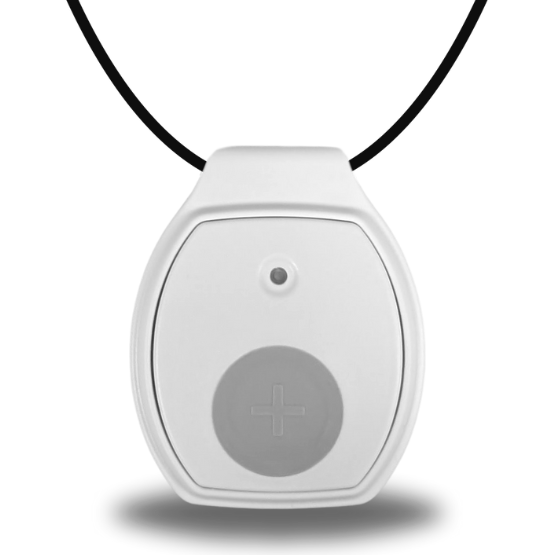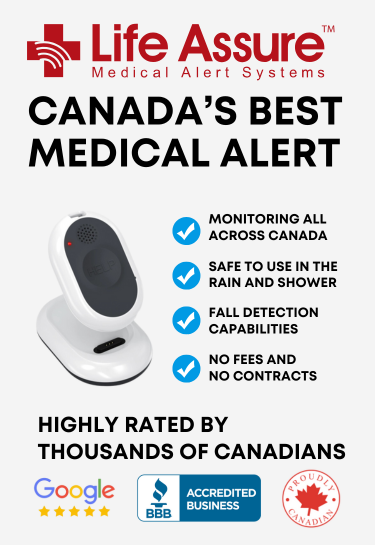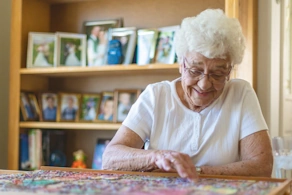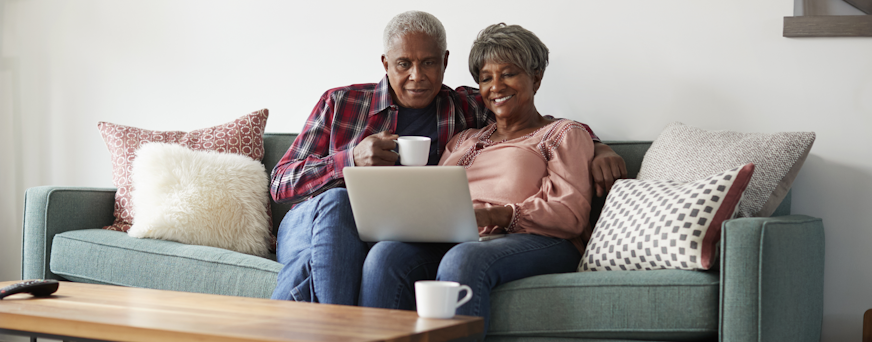What Is The Most Common Hearing Loss Age? What Changes To Expect At Different Stages Of Life
Hearing loss is a condition with which millions of people all over the Canada live. It is also an age-progressive condition whose prevalence increases with the increasing years of our life.
Although it might hit at any time in one's life, it is significantly more common as a person gets older.
Staying informed about the facts related to hearing loss age, what changes one can expect to go through in every stage of life, and how to manage them will help people and their families be much better prepared and equipped to overcome the problem.
Life Assure Product Quiz
Find The Perfect Medical Alert Device
Take our 30 second quiz and discover which Life Assure medical alert device is the right fit for you or a loved one.
Life Assure Product Quiz
Find The Perfect Medical Alert Device
Take our 30 second quiz and discover which Life Assure medical alert device is the right fit for you or a loved one.
Hearing Loss in Early Adulthood (18-40 Years)
At early adulthood, hearing is usually at its best. Most in this age group can hear most of the sounds clearly and precisely. However, this does not totally preclude it from being completely unable to hear due to noise exposure.
Exposure to loud environments associated with music events like concerts or clubs is very common to many young adults, even to personal devices like headphones and earbuds.
According to the experts, exposure to sounds above 85 decibels may cause noise-induced hearing loss, which at times becomes permanent.
Checks on one's hearing are also recommended, especially for those whose work brings them often into contact with loud noises.
Hearing Loss in Middle Age (40-65 Years)
The risk of hearing loss increases with age into middle age. For many people, this is also where the process of age-related hearing loss, or presbycusis, begins.
Presbycusis probably first affects higher-pitched sounds; it notably affects speech and generally occurs in situations with background noise. This type of hearing loss is almost imperceptibly progressive, and the affected person might not even realize their threshold has fallen.
Besides the age factor, other health conditions, which are more common at middle age, may also cause hearing loss. These will systemically affect blood flow to the inner ear and encourage damage over time.
In addition, at this stage, middle-aged adults may continue to suffer from noise-induced loss in case they continue to be exposed to loud sounds at work or during other activities where they do not protect themselves well. This is where close monitoring of one's hearing becomes necessary.
A middle-aged adult needs to be aware of early detection of hearing loss, watching out for symptoms such as having to constantly ask people to repeat themselves, having trouble hearing conversations in crowded areas like restaurants, or having the volume of a television turned up higher than usual.
Such early detection may ensure that these are effectively managed with the use of hearing aids or any other assistive devices.
Hearing Loss in Older Adults (65 Years and Older)
The prevalence increases greatly at higher age groups. According to the National Institute on Deafness and Other Communication Disorders, one in three people in the Canada between ages 65 and 74 has hearing loss.
Nearly half over 75 years are affected. In fact, presbycusis remains the most common cause of hearing loss in this population since it is typically associated with at least a few decades of noise exposure, genetic factors, and comorbidities.
The auditory changes related to aging put a considerable load on the person's communicative capacity and may, therefore, affect the general quality of life.
Failure to hear, especially during telephone conversations or in noisy environments, often results easily in social withdrawal, hence a sense of loneliness.
In addition to this, hearing impairment in the elderly has been associated with cognitive decline, while some studies emphasize that untreated hearing loss contributes to the development of dementia.
Older people, on the other hand should get regular testing done regarding hearing and use a hearing aid or other devices recommended for the same.
In fact, today's hearing aids are much improved and much less obtrusive as compared to a number of older aids. In addition, they can make big differences in the way you hear and in your communications.
Other things that can be done to help an older person remain more active include socializing and keeping their minds active; these practices can be helpful in compensating for some of the potential cognitive liabilities that might come as a result of hearing loss.
The Most Common Hearing Loss Age
Although hearing loss age may start at any point in a person's life, it becomes common and severe during older adulthood. Those over 65 years are the most severely affected by hearing loss.
The prevalence goes drastically up in this category and more so in those aged 75 and above. This trend underlines the rationale for periodic hearing assessment and early intervention to manage cases of hearing loss with aging.
It should, however, be considered that even though it is the major factor, age, combined with lifestyle choices and environmental exposures in a lifetime, is very important in dictating the time of onset and degree of hearing loss.
Thus, protecting one's hearing from an early age will delay the onset of age-related hearing loss and will have less harmful effects during old age.
Changes to Expect at Different Life Stages
The nature and influence of hearing loss change with age. At the stage of young adulthood, hearing loss and noise exposure start to become more interlinked, although intervention with protection can still be done.
In middle age, presbycusis becomes more evident, and people may start to have trouble hearing high-pitched sounds and conversations in noisy places.
By older adulthood, however, hearing loss would have become more marked and starts impacting on living significantly, which may finally cause problems with communication and social interaction.
At each age stage, the approach differs in dealing with hearing loss. The approach is more towards prevention and early detection in young and middle-aged adults.
This may be ensured by using ear protection and reducing noise exposure and also by having regular checkups for hearing.
In older adults, more attention is paid to managing already existing hearing loss, which often involves the use of hearing aids and other assistive devices aimed at facilitating improved communication and enhanced quality of life.
Conclusion
The condition does affect all age groups, although the prevalence and degree of severity tend to increase with advancing age.
If one understands the changes to expect at different life stages and takes proactive steps toward protecting and managing hearing, it could make a big difference in keeping up a high quality of life.











 Get Help With The Push Of A Button
Get Help With The Push Of A Button















